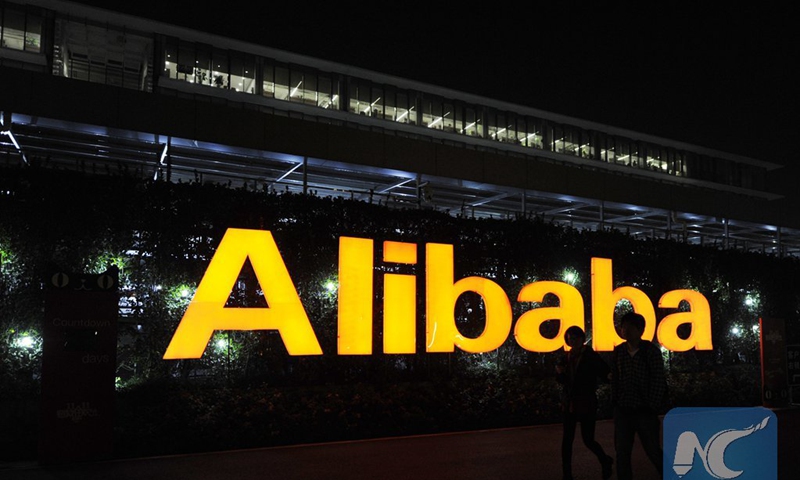Chinese regulators summon 34 platforms to meeting, ordering them to self-scrutinize irregularities

Alibaba
Online platform service companies in China are asked to stand in owe of rules and undertake comprehensive rectification of their monopolistic acts and tax-related irregularities or violations within one month, according to key takeaways from an administrative supervisory meeting held on Tuesday.
Alibaba's anti-trust case should fully serve as a wakeup call, said the meeting presided by the State Administration for Market Regulation (SAMR), the Office of the Central Cyberspace Affairs Commission and the State Taxation Administration.
A total of 34 Chinese online platform businesses, including Tencent, Alibaba, Baidu, JD.com, Didi and Meituan were summoned to the meeting. Provincial-level market watchdogs from Beijing, Shanghai, Guangdong and other provinces and regions attended the meeting.
The SAMR announced a record $2.8 billion anti-trust fine on Alibaba on Saturday, after a more-than-three-month investigation concluded the e-commerce giant breached the country's Anti-Monopoly Law which stipulates a business operator with a dominant market position is forbidden to restrict business competitors by requiring exclusive arrangements without justifiable causes.
China's digital platform-based economy has enjoyed explosive growth, but a gradual pile-up of unhealthy business practices amid rapid development shouldn't be overlooked.
The practice of forcing merchants to "choose one from two platforms," abuse of market dominance, among a slew of noncompliance and tax-related violations must be seriously rectified, according to the meeting.
Notably, the forced choice of one from two platforms is a striking indication of unruly and unchecked expansion of capital, blatantly breaching market competition order and hampering innovative development.
The meeting pointed out that platform companies should strictly follow government instructions, strengthen their sense of responsibility, place national interests first and comply with laws and regulations.
Specially, the regulators asked the platform companies to stop "unruly expansion of capital" to ensure economic and social safety, to stop monopolistic moves that harm fair competition, to stop strangling competitors with technologies that harm innovation, and to stop abuse of rules and algorithms and to ensure every market player's legitimate rights and interests.
The regulators ordered platform companies to review all internal processes within a month and thoroughly rectify monopolistic actions that harm fair competition.
Meanwhile, the regulators will undertake inspections to ferret out any irregularities or violation of market rules.
Strengthening management of the platform business doesn't mean that the country's attitude of supporting and encouraging platform economy will be changed, but the move will serve as a wake-up call for the platforms to always help promote fair competition, to be innovative, and to serve the society.
Global Times



